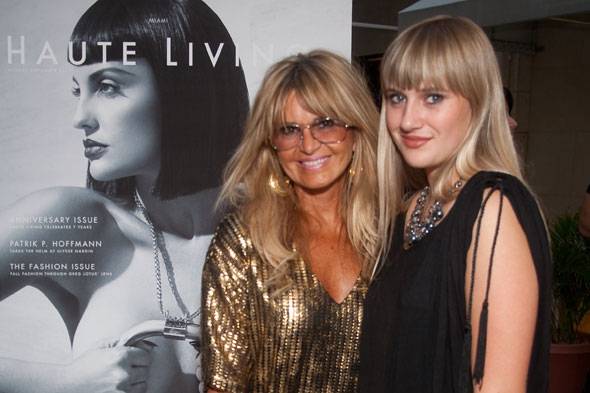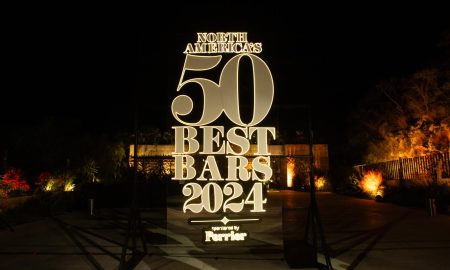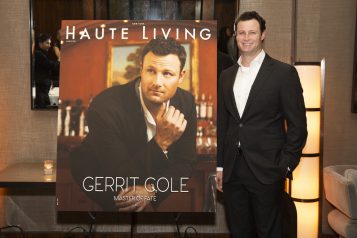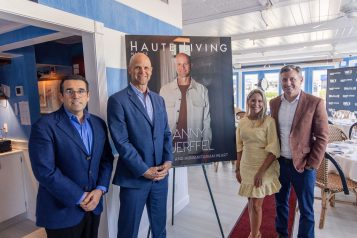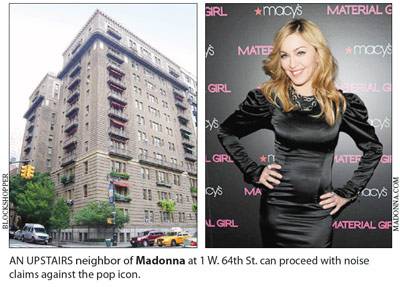
Madonna’s upstairs neighbor at her Central Park West building who complained about blaring music that shook her walls and floor can proceed with claims against the pop icon and against the cooperative building’s board and manager, according to a state judge.
“One of the most basic functions of a residence is to provide shelter from the outside world for its occupants to think, interact and relax in peace,” Manhattan Justice Louis York wrote in George v. Board of Directors of One West 64th Street Inc., 114555-2009. “If the noise caused by Madonna’s activities prevented Plaintiff from being able to use her apartment for these purposes, then the warranty of habitability has been breached.”
Karen George alleged that music coming from Madonna’s apartment, which was used for dance training and exercise routines, was loud enough to force her to leave several times and greatly hampered her own entertaining. Over two years, the music played for between 90 minutes to three hours a day.
She claims that in June 2008 she alerted the board and management of 1 W. 64th St. in addition to Madonna’s representatives, but no one took sufficient steps to fix the problem.
A May 2009 noise abatement measure by Madonna did not lower the volume, Ms. George argued.
Ms. George sued the board and Midboro Management for breach of the warranty of habitability, private nuisance, attorney’s fees and injunctive relief that would have forced Madonna to comply with building rules preventing unreasonable noise. She also sued Madonna for nuisance and injunctive relief.
The dancing and training to “unreasonably high decibel amplified music, caus[ed] noise and vibration to pour through the walls, ceilings, radiators and other conduits that transmit sound,” Ms. George argued in her October 2009 complaint.
The defendants responded that the music was only played during the day, never longer than three hours and never at volumes prohibited by the city noise code.
They argued Ms. George denied access to her apartment in September 2009 and other times, which made sound assessment impossible. Ms. George said she did allow access, and any denials were made for good reason.
Madonna submitted an affidavit this past March saying she no longer used the apartment to exercise or dance but constructed a studio in one of her other New York City properties. In June 2011, the parties stipulated that Ms. George would drop her injunctive relief claims.
Justice York narrowed the claims in an Aug. 19 decision, but—noting a dispute about the music’s volume—let Ms. George proceed with her nuisance allegation against Madonna and the breach of warranty allegation against the building defendants.
Justice York noted some case law holding that landlords, co-op boards and corporations could face liability for a breach of the warranty of habitability that the “condition of the premises be in accord with the uses reasonably intended by the parties.”
But he noted that “[w]hether particular noises rise to this level is a material issue of fact which, if controverted, precludes summary judgment.”
An affidavit from Michael Wolfe, Midboro Management’s president, said a measuring device in December 2008 showed sound levels below noise code limits in Ms. George’s apartment.
Defendants also included an affidavit from Bonnie Schnitta, an acoustical engineer who did the May 2009 sound abatement at Madonna’s apartment. After the abatement, she gauged levels in the hallway outside Ms. George’s apartment. The measurements were within 10 decibels of the “ambient noise level” allowed by city codes.
But according to the decision, Ms. George’s own acoustical engineer, Benjamin Sachwald, said the building’s measurements were “unreliable” because, among other things, there was a failure to show correct calibration.
Instead, Mr. Sachwald did his own calculations. From March to April 2009, he determined the sound in Ms. George’s apartment was “in excess of 5 to 7 decibels above the ambient sound level.”
The levels were “readily noticeable and intrusive,” Mr. Sachwald said in his affidavit.
With the reasonableness of the sound in dispute, Justice York wrote, “[w]hether the noise in question possessed such qualities as to violate the warranty of habitability is a question of fact which must be left for trial.”
Meanwhile, Justice York said he was not convinced by the building defendants’ arguments that they were protected by the business judgment rule or that Ms. George had unclean hands because she refused to grant access to her apartment for measurements.
Justice York did, however, remove the building defendants from the nuisance claim. Noting that the building defendants did not create the alleged disturbances, he wrote “[a]ny remedy the Plaintiff may have against the Building Department thus lies solely in her breach of the warranty of habitability claim, not in a claim for nuisance.”
Steven J. Cohen of Wachtel & Masyr represented Ms. George.
Noting that his client is seeking unspecified damages, Mr. Cohen said in an interview that “we’re generally pleased that the case will go forward and Ms. George will be able to demonstrate her entitlement to damages.”
The building defendants were represented by Thomas W. Hyland of Wilson Elser Moskowitz Edelman & Dicker.
Mr. Hyland said in an interview that Justice York was “correct in denying plaintiff’s motion for summary judgment but I believe he should have granted mine. Still I am very confident that ultimately my clients will prevail in this litigation.”
After completing discovery, Mr. Hyland said he expected a trial to be scheduled by the end of this year or the beginning of next year.
Randall Sims of Manhattan represented Madonna. He could not be reached for comment.
Source: Law.com
Like Haute Living New York? Join our Facebook page or follow us on Twitter @HauteLivingNY. Want Haute Living New York delivered to your inbox once a week? Sign up for our newsletter.








